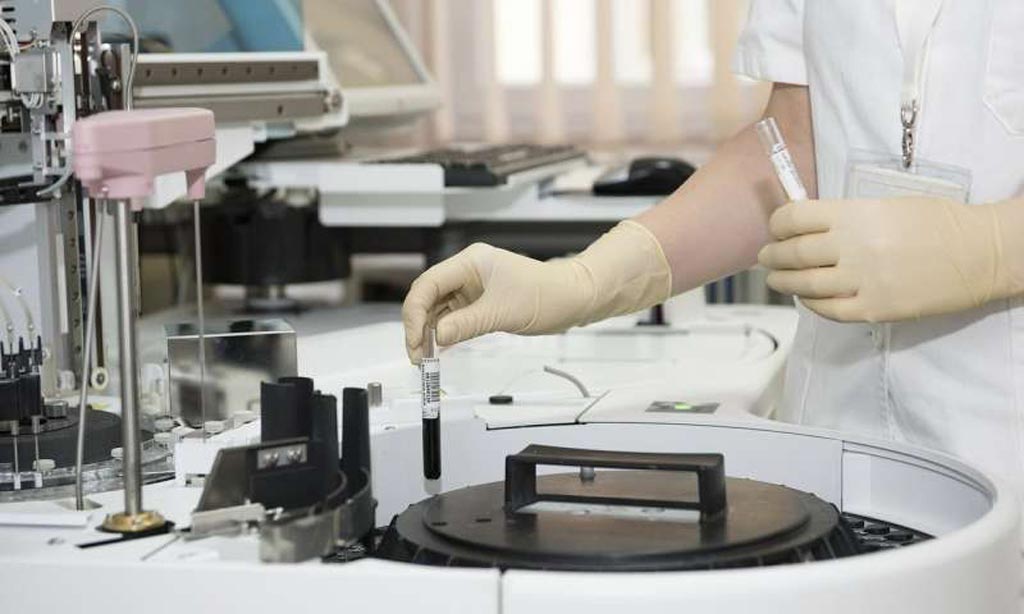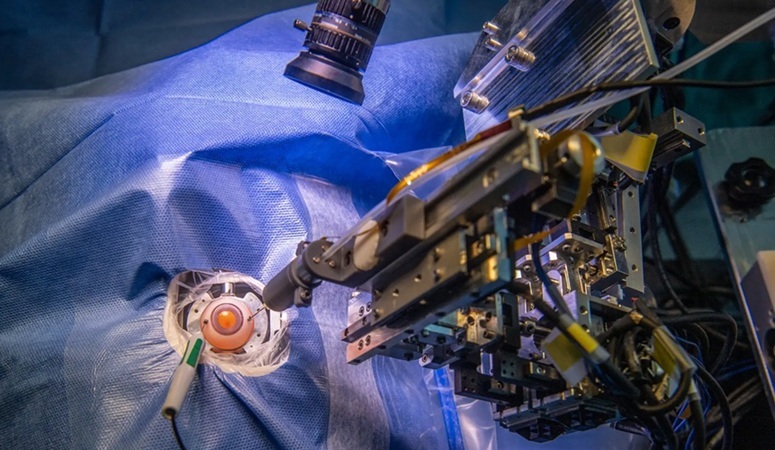Hundreds of Medical Practices Are Ineffective or Misguided
|
By HospiMedica International staff writers Posted on 26 Jun 2019 |

Image: Scientists have identified nearly 400 established medical practices that have been found to be ineffective by clinical studies published across three top medical journals (Photo courtesy of Medical Xpress).
A new study identifies almost 400 existing medical reversals, defined as low-value medical practices that are no better than a prior or lesser standard of care.
Researchers at the Oregon Health & Science University (OHSU, Portland, USA), the University of Chicago (IL, USA), and other institutions undertook an analysis of more than 3,000 randomized controlled trials (RCTs) published in three leading medical journals--the Journal of the American Medical Association (JAMA), The Lancet, and the New England Journal of Medicine (NEJM)--to uncover new and improved clinical trials that declare a current medical practice as a medical reversal. Such medical reversals often concern medications, but they can also affect surgical procedures.
The analysis uncovered 396 medical reversals: 154 of them in JAMA, 129 in NEJM, and 113 in The Lancet. Most of the medical reversals occurred in the fields of cardiovascular disease (20%), public health and preventive medicine (12%), and critical care (11%). The most common interventions involved medications (33%), procedures (20%), vitamins and supplements (13%), devices (9%), and system interventions (8%). Most of the reversal studies took place in high-income countries, with only 8% performed in low- or middle-income countries. The study was published on June 11, 2019, in eLife.
“There are a number of lessons that we can take away from our set of results, including the importance of conducting RCTs for both novel and established practices,” said senior author Vinay Prasad, MD, of the OHSU Knight Cancer Institute. “Once an ineffective practice is established, it may be difficult to convince practitioners to abandon its use. By aiming to test novel treatments rigorously before they become widespread, we can reduce the number of reversals in practice and prevent unnecessary harm to patients.”
An example of one such reversal is the use of a thigh-length graduated compression stocking (GSC) to reduce the risk of deep vein thrombosis (DVT) after stroke. GSCs were first used by German physicians in the late 19th century when they noticed that superficial vein thromboses disappeared after the use of compression bandages. But a 2009 study published in The Lancet found that there was no difference in occurrence of symptomatic or asymptomatic DVT between groups, and that more adverse events actually occurring in the GSC group.
Related Links:
Oregon Health & Science University
University of Chicago
Researchers at the Oregon Health & Science University (OHSU, Portland, USA), the University of Chicago (IL, USA), and other institutions undertook an analysis of more than 3,000 randomized controlled trials (RCTs) published in three leading medical journals--the Journal of the American Medical Association (JAMA), The Lancet, and the New England Journal of Medicine (NEJM)--to uncover new and improved clinical trials that declare a current medical practice as a medical reversal. Such medical reversals often concern medications, but they can also affect surgical procedures.
The analysis uncovered 396 medical reversals: 154 of them in JAMA, 129 in NEJM, and 113 in The Lancet. Most of the medical reversals occurred in the fields of cardiovascular disease (20%), public health and preventive medicine (12%), and critical care (11%). The most common interventions involved medications (33%), procedures (20%), vitamins and supplements (13%), devices (9%), and system interventions (8%). Most of the reversal studies took place in high-income countries, with only 8% performed in low- or middle-income countries. The study was published on June 11, 2019, in eLife.
“There are a number of lessons that we can take away from our set of results, including the importance of conducting RCTs for both novel and established practices,” said senior author Vinay Prasad, MD, of the OHSU Knight Cancer Institute. “Once an ineffective practice is established, it may be difficult to convince practitioners to abandon its use. By aiming to test novel treatments rigorously before they become widespread, we can reduce the number of reversals in practice and prevent unnecessary harm to patients.”
An example of one such reversal is the use of a thigh-length graduated compression stocking (GSC) to reduce the risk of deep vein thrombosis (DVT) after stroke. GSCs were first used by German physicians in the late 19th century when they noticed that superficial vein thromboses disappeared after the use of compression bandages. But a 2009 study published in The Lancet found that there was no difference in occurrence of symptomatic or asymptomatic DVT between groups, and that more adverse events actually occurring in the GSC group.
Related Links:
Oregon Health & Science University
University of Chicago
Latest Critical Care News
- Ingestible Capsule Monitors Intestinal Inflammation
- Wireless Implantable Sensor Enables Continuous Endoleak Monitoring
- Pulse Oximeter Index Offers Non-Invasive Guides for Fluid Therapy
- Wearable Patch for Early Skin Cancer Detection to Reduce Unnecessary Biopsies
- 'Universal' Kidney to Match Any Blood Type
- Light-Based Technology to Measure Brain Blood Flow Could Diagnose Stroke and TBI
- AI Heart Attack Risk Assessment Tool Outperforms Existing Methods
- Smartphone Imaging System Enables Early Oral Cancer Detection
- Swallowable Pill-Sized Bioprinter Treats GI Tract Injuries

- Personalized Brain “Pacemakers” Could Help Patients with Hard-To-Treat Epilepsy
- Microscopic DNA Flower Robots to Enable Precision Medicine Delivery
- Origami Robots to Deliver Medicine Less Invasively and More Effectively
- Improved Cough-Detection Technology Aids Health Monitoring
- AI Identifies Children in ER Likely to Develop Sepsis Within 48 Hours
- New Radiofrequency Therapy Slows Glioblastoma Growth
- Battery-Free Wireless Multi-Sensing Platform Revolutionizes Pressure Injury Detection
Channels
Surgical Techniques
view channel
Robotic Assistant Delivers Ultra-Precision Injections with Rapid Setup Times
Age-related macular degeneration (AMD) is a leading cause of blindness worldwide, affecting nearly 200 million people, a figure expected to rise to 280 million by 2040. Current treatment involves doctors... Read more
Minimally Invasive Endoscopic Surgery Improves Severe Stroke Outcomes
Intracerebral hemorrhage, a type of stroke caused by bleeding deep within the brain, remains one of the most challenging neurological emergencies to treat. Accounting for about 15% of all strokes, it carries... Read morePatient Care
view channel
Revolutionary Automatic IV-Line Flushing Device to Enhance Infusion Care
More than 80% of in-hospital patients receive intravenous (IV) therapy. Every dose of IV medicine delivered in a small volume (<250 mL) infusion bag should be followed by subsequent flushing to ensure... Read more
VR Training Tool Combats Contamination of Portable Medical Equipment
Healthcare-associated infections (HAIs) impact one in every 31 patients, cause nearly 100,000 deaths each year, and cost USD 28.4 billion in direct medical expenses. Notably, up to 75% of these infections... Read more
Portable Biosensor Platform to Reduce Hospital-Acquired Infections
Approximately 4 million patients in the European Union acquire healthcare-associated infections (HAIs) or nosocomial infections each year, with around 37,000 deaths directly resulting from these infections,... Read moreFirst-Of-Its-Kind Portable Germicidal Light Technology Disinfects High-Touch Clinical Surfaces in Seconds
Reducing healthcare-acquired infections (HAIs) remains a pressing issue within global healthcare systems. In the United States alone, 1.7 million patients contract HAIs annually, leading to approximately... Read moreHealth IT
view channel
Printable Molecule-Selective Nanoparticles Enable Mass Production of Wearable Biosensors
The future of medicine is likely to focus on the personalization of healthcare—understanding exactly what an individual requires and delivering the appropriate combination of nutrients, metabolites, and... Read moreBusiness
view channel
Philips and Masimo Partner to Advance Patient Monitoring Measurement Technologies
Royal Philips (Amsterdam, Netherlands) and Masimo (Irvine, California, USA) have renewed their multi-year strategic collaboration, combining Philips’ expertise in patient monitoring with Masimo’s noninvasive... Read more
B. Braun Acquires Digital Microsurgery Company True Digital Surgery
The high-end microsurgery market in neurosurgery, spine, and ENT is undergoing a significant transformation. Traditional analog microscopes are giving way to digital exoscopes, which provide improved visualization,... Read more
CMEF 2025 to Promote Holistic and High-Quality Development of Medical and Health Industry
The 92nd China International Medical Equipment Fair (CMEF 2025) Autumn Exhibition is scheduled to be held from September 26 to 29 at the China Import and Export Fair Complex (Canton Fair Complex) in Guangzhou.... Read more














